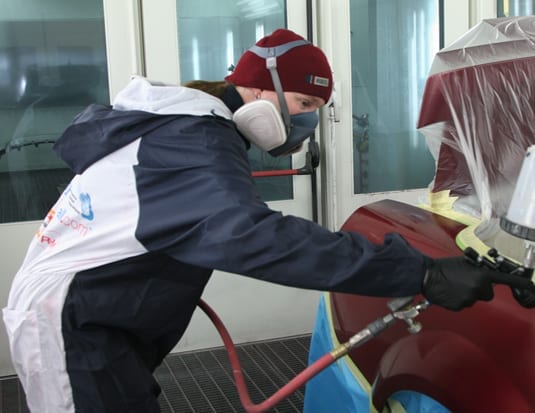A chronic shortage of skilled tradespeople could be our undoing.
There’s a crisis looming, not only within our industry but Canada’s economy in general, namely the lack of young people getting into skilled trades.
Across the country, high school technical programs are either struggling from chronic lack of investment or have folded entirely. At the post-high school level in many cases, things aren’t much better. Many technical colleges today have to rely on outside sources of funding (such as corporate sponsorship) to keep programs going; since in many cases budgets have not increased for over two decades and are woefully inadequate to support the equipment and training required.
A further issue concerns staffing. Today, it seems that practical industry experience often takes a back seat to qualifications or university education. The result is that programs end up with educators and instructors who often lack real-world experience, putting students at a decided disadvantage when it comes time to venture out into the real world.
Focusing on the collision industry and across this country, there are frequent stories of how shops are struggling to find the right people or particularly, finding young blood to replace those approaching retirement age.
Yet there are some bright spots. Programs like the Pre-Apprenticeship Auto body and Collision Damage Repairer Training Program run through Tropicana Community Services in Scarborough, Ont., as well as a similar program being offered through Mohawk College in Hamilton, Ont., are positive signs that opportunities for teens to pursue a career in this industry still exist.
We also have Skills Canada that provides a platform for talented youth to really demonstrate their technical skills at a provincial, national and even international level, including fields such as automotive mechanics as well as auto body repair and car painting.
At the graduate level, there are also a number of technical colleges that are really trying their best to ensure students get the relevant training and mentorship they need via partnerships through industry associations as well as vehicle and equipment manufacturers/suppliers.
Additionally, tools like the upcoming Aftermarket Labour Market Intelligence (ALMI) initiative—designed to provide accurate labour market data and address challenges such as labour shortages, skills gaps and wage concerns—will also provide a positive influence when it comes to promoting and enhancing automotive and skilled trades professions in this country.
So there are some positive developments. Yet I think the biggest challenge we still face is getting the message across that an automotive career can be hugely rewarding. And in order to do that, there needs to be a huge, active push towards promoting our industry—and skilled trades in general—as a vital part of the national economy as well as a rewarding career path.
For the last three decades, there has been a growing public mindset that in order to get ahead in life the only way to do so is to focus on career paths such as academia, medicine and law. That’s why we’ve seen countless high school shop classes fall by the wayside and a lack of investment in college level technical programs and apprenticeships.
Today, Canada is faced with a lopsided labour market. On the one hand we have universities and higher education institutions pumping out too many graduates for positions in white-collar fields while at the other end vital skilled trades positions (including collision repair) simply have too few applicants.
And unless something changes, this could have dire economic consequences.
I recently had the privilege of interviewing a prominent member of Canada’s automotive education community and critical subject that came up was competitive advantage. For decades, Canada has been recognized as a leader in engineering and technical skills, yet that competitive advantage is being quickly eroded and yielded to nations such as Germany that continue to heavily invest in technical skills training and development.
If we’re not careful, we could end up being a largely service driven economy, which could severely limit our growth prospects for the future, both as a place to live and a place to work.



